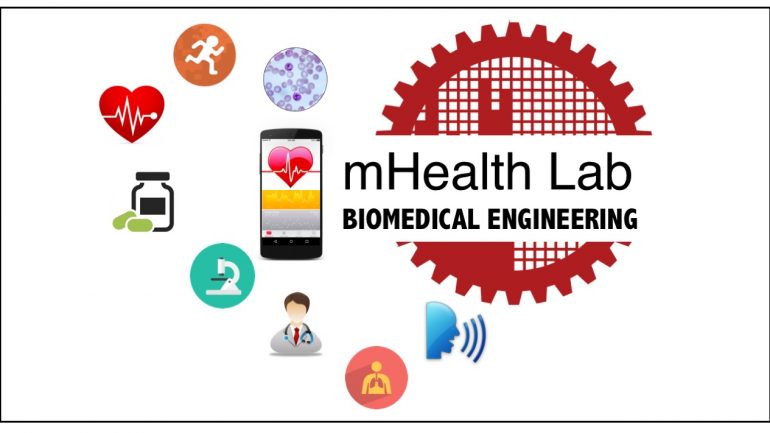The Department of Biomedical Engineering (BME) at Bangladesh University of Engineering and Technology (BUET) has received its first grant from the Ministry of Science and Technology (MoST), Bangladesh, entitled “Development of a Mobile Health Research Laboratory for The Department of Biomedical Engineering at BUET.” The aim of this grant is to develop the laboratory infrastructure and conduct research on mobile Health (mHealth) technologies to address the healthcare needs of the country. To facilitate the research, the Department of BME is establishing an mHealth Lab. Also, a bio-manufacturing lab and workshop are being built at BME to support manufacturing and fabrication of biomedical devices. The mHealth Lab and the relevant research activities will be coordinated by Dr. Taufiq Hasan, Assistant Professor, BME.
Mobile Health, or mHealth for short, is a term used for the practice of medicine and public health supported by mobile devices. Specifically, mHealth aims to use mobile communication devices, such as cell phones, tablets, and PDAs, for delivering physical and mental health services and information. The smartphones & PDAs that we carry today are at least a million times faster than the NASA’s computers in the 1960s, and these devices are packed with sensors, including a microphone, camera, gyroscope, accelerometer, GPS, and an even heart-rate and infrared sensor in some recent models. The potential of such computing power with voice and data connectivity at our fingertips can enable a wide-range of applications in healthcare, including heart rate detection, blood pressure monitoring, activity tracking, fall detection, lung function test, to name a few.
The mHealth Lab at BUET will consist of workstations, android devices, various microcontrollers and sensors, and electronic circuit development tools. To support this lab and related bio-manufacturing efforts, the Department of BME is establishing an advanced workshop consisting of a 3D printer, laser cutter, circuit board printer, etc. Research topics covered by this grant will include low-cost sensor development for heart and lung sound analysis and skin cancer detection using cell-phone cameras. The lab aims to not only experiment with innovative mobile healthcare devices but also build robust prototypes for real-world evaluation and possible commercialization.
mHealth technology and its applications have an enormous potential for impact, in particular for a developing country like Bangladesh. Smartphones and tablets with connectivity as healthcare tools provide access to a large segment of the population in remote areas of our country, which would otherwise be inaccessible. In academia, many top-ranked Universities are active in research and development of mHealth tools and devices to address global health needs. In industry, the large telecom companies and startups are offering mHealth and telemedicine services to their customers. The mHealth Lab at BUET envisions to collaborate with both international academic scientists and industry leaders in Bangladesh to accelerate local innovation in this sector.

Leave a Reply